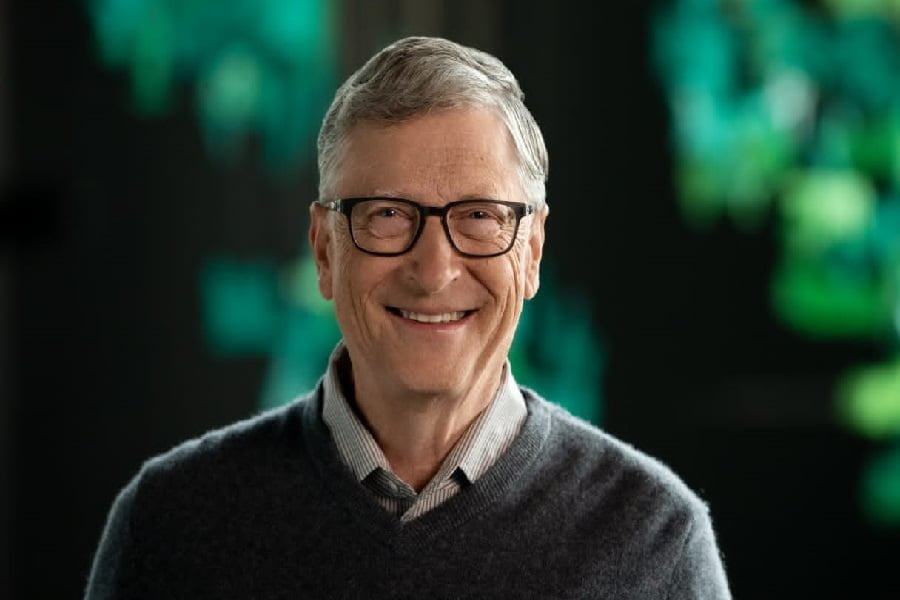Four projects from Nigeria were selected while South Africa has the highest with seven projects, followed by Kenya with five.
The Bill & Melinda Gates Foundation (BMGF) has announced the selection of 50 grant recipients who are developing global health and development solutions using artificial intelligence (AI) enabled large language models (LLMs).
Each recipient, including four from Nigeria according to the foundation, will receive up to US$100,000 each to advance their research project, for a total of US$5 million in grants.
According to an official statement Thursday, the recipients were selected as part of the organisation’s Grand Challenges Program, a family of initiatives fostering innovation to solve pressing global health and development problems.
It said more than 1,300 proposals were received within two weeks of opening application processes, noting that more than 80 per cent of these proposals were from low- and middle-income countries (LMICs).
It added that the findings of these projects will be shared at the Grand Challenges Annual Meeting in Dakar, Senegal, this October.
Improving livelihood
The foundation noted that the call for proposals specifically targeted researchers and innovators in low- and middle-income countries (LMICs) with the goal of reducing global inequity and improving the well-being of communities globally.
BMGF in its statement said; “The nearly 50 selected projects from 17 LMICs are aligned with the foundation’s goal of fostering a global innovation ecosystem in places where it will have the most impact.
“Responsible and safe use of AI-driven LLM technology has the potential to help solve some of the world’s toughest health and development challenges.”
For these models to be useful in LMICs, BMGF said researchers in LMICs need to participate in the design, application, and testing of this technology as it rapidly evolves.
“Too often, advances in technology deliver uneven benefits in many parts of the world due to existing patterns of discrimination, inequality, and bias,” Juliana Rotich, the co-founder of iHub, an incubator for Nairobi’s young technology entrepreneurs was quoted as saying.
“AI is no different, with most of the tools being developed in the Global North using data from lower-resourced regions that are often incomplete or inaccurate,” she added.
Ms Rotich said to realise the full potential of AI, it must be developed responsibly and ethically, with the needs of the end user in mind.
Nigerian innovations
As part of the Grand Challenges programme to build upon existing technologies, researchers will work to address a wide range of health and development challenges throughout LMICs.
A check on the list of selected projects in Africa, Nigeria has four, while South Africa has the highest with seven projects, followed by Kenya with five.
In Nigeria, the projects include a large language model (LLM) tool to support frontline health workers in low-resource settings; integration of a large language model (LLM) for women-centered care; an adaptive learning content for rural students, and leveraging a large language model (LLM) for financial inclusion.
In her remarks, the interim deputy director for Technology Diffusion at the Gates Foundation, Zameer Brey, was quoted to have said that the local innovators are harnessing “the seismic power of AI and LLMs in ways that can be paradigm-shifting for their local communities and beyond.”
“We believe the most impactful technological advancements include those that begin and end with the people they affect most.”
Also, Kedest Tesfagiorgis, the deputy director of Global Partnerships and Grand Challenges at BMGF, said: “Maximising the potential of AI requires a global community of creative thinkers bringing their unique perspectives and learning from each other.”
About Grand Challenges
According to the foundation, the Grand Challenges family of programmes stems from a century-old idea that crowdsourcing solutions to a defined set of unsolved problems can spark innovation and accelerate progress.
The Bill & Melinda Gates Foundation and its Grand Challenges funding partners reportedly first used challenges in 2003 to focus attention and effort on pressing global health and development problems for those most in need.
Through Grand Challenges, the foundations and partners have awarded more than 3,600 grants to a diverse pool of problem solvers in more than 100 countries, while at the same time fostering a global innovation ecosystem in places where it will have the most impact.

